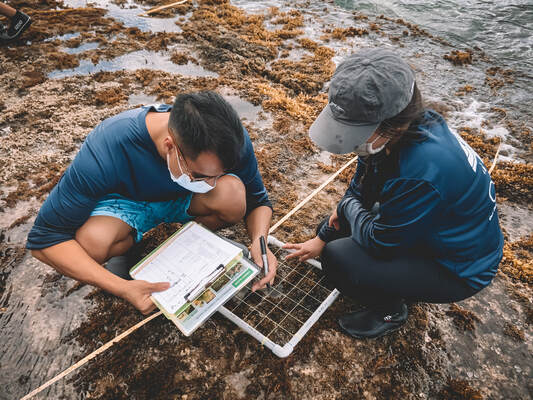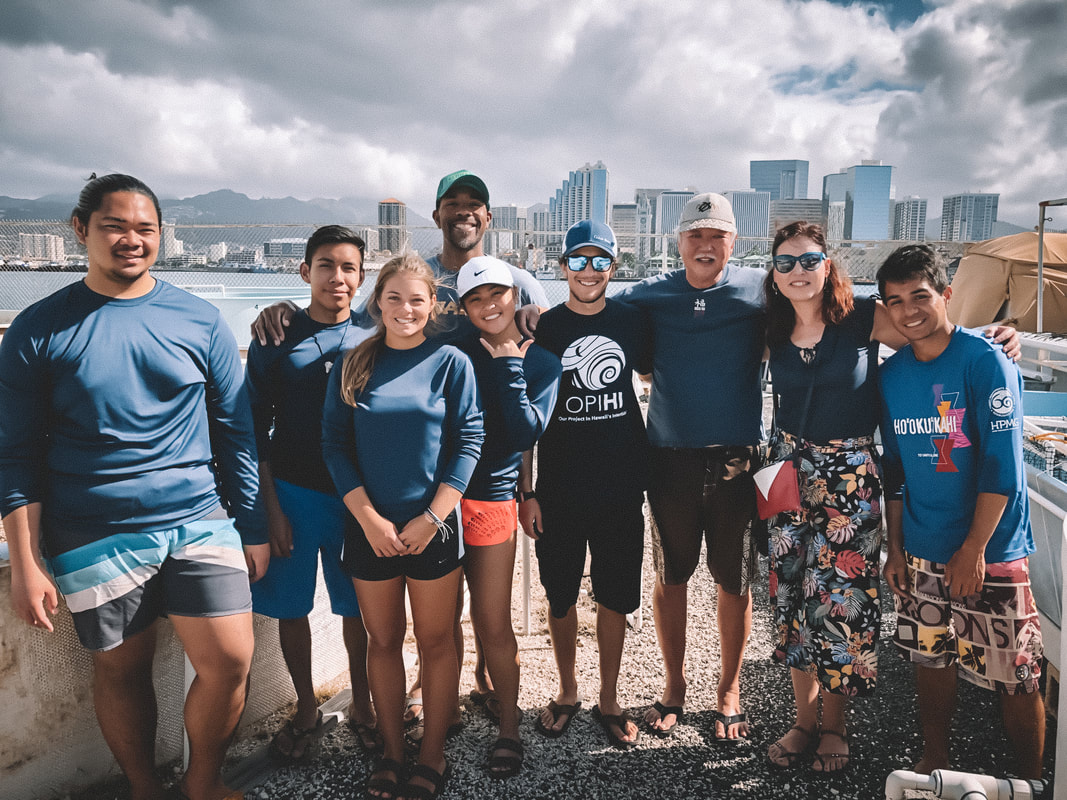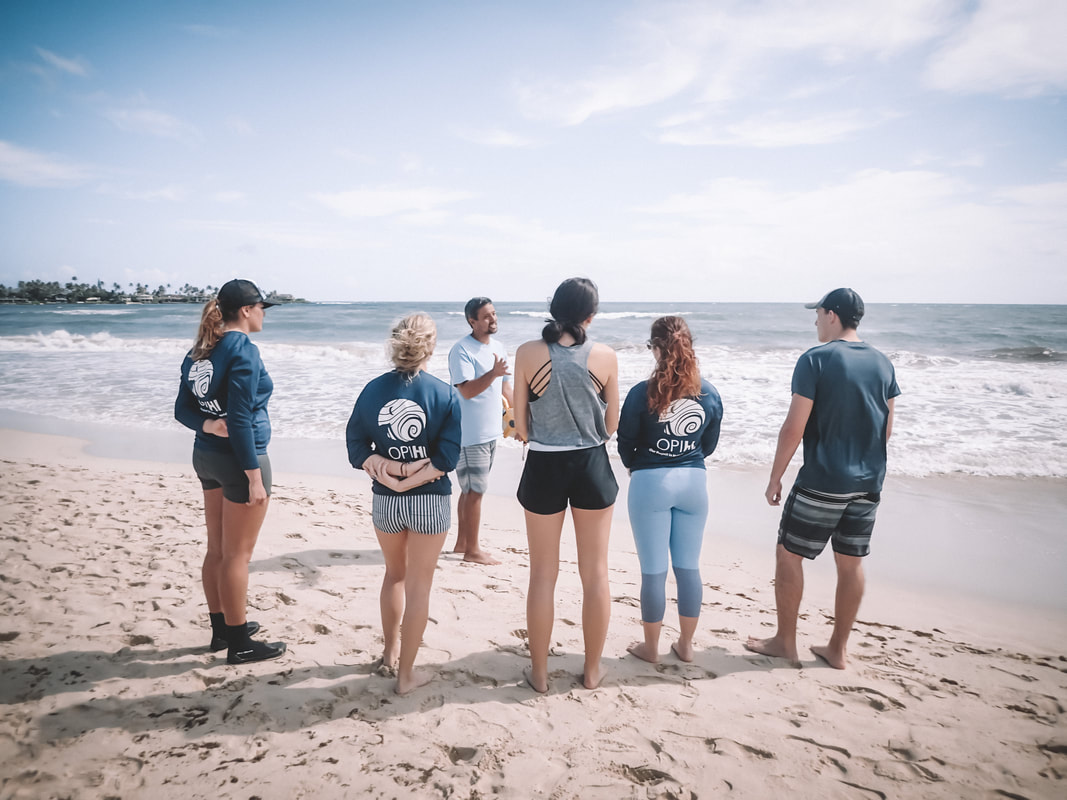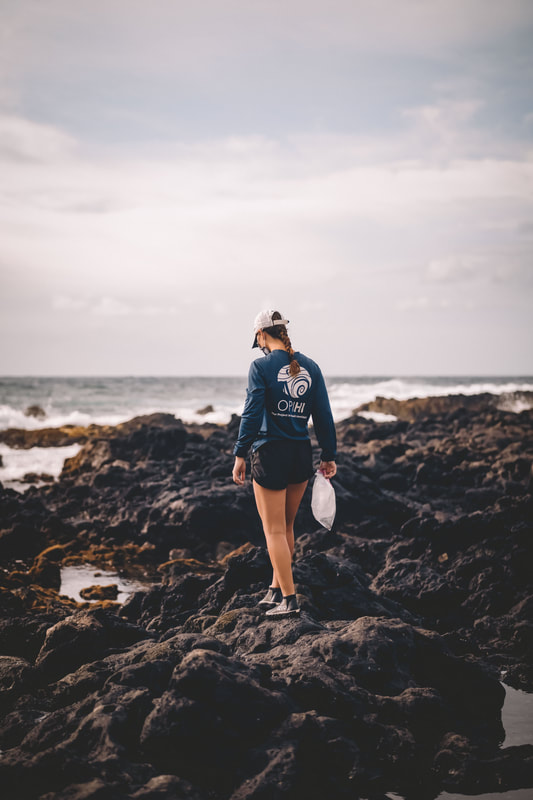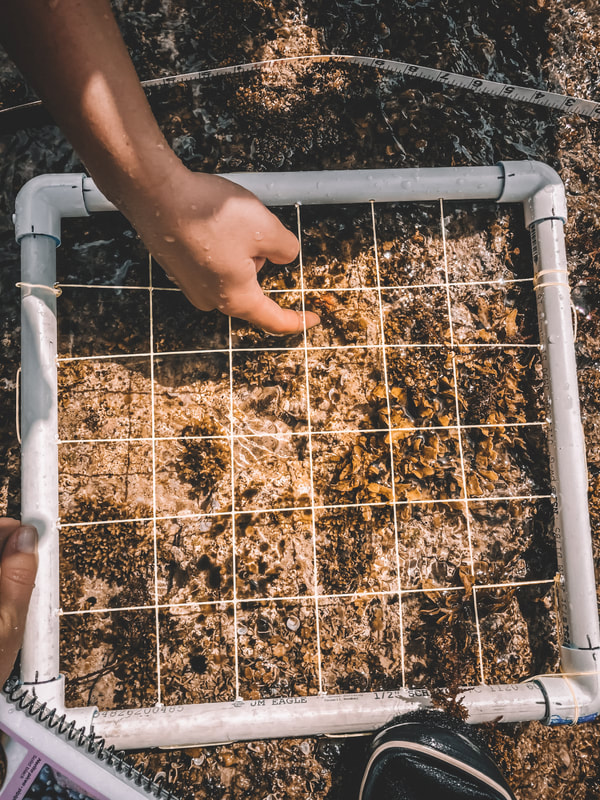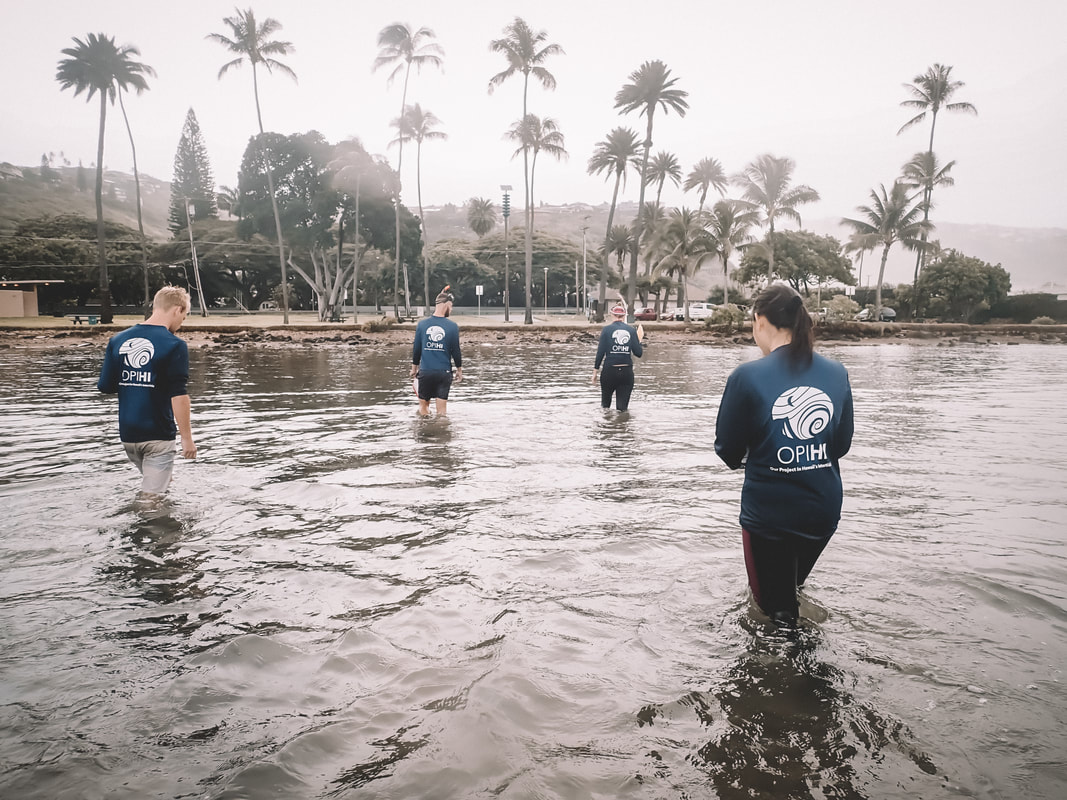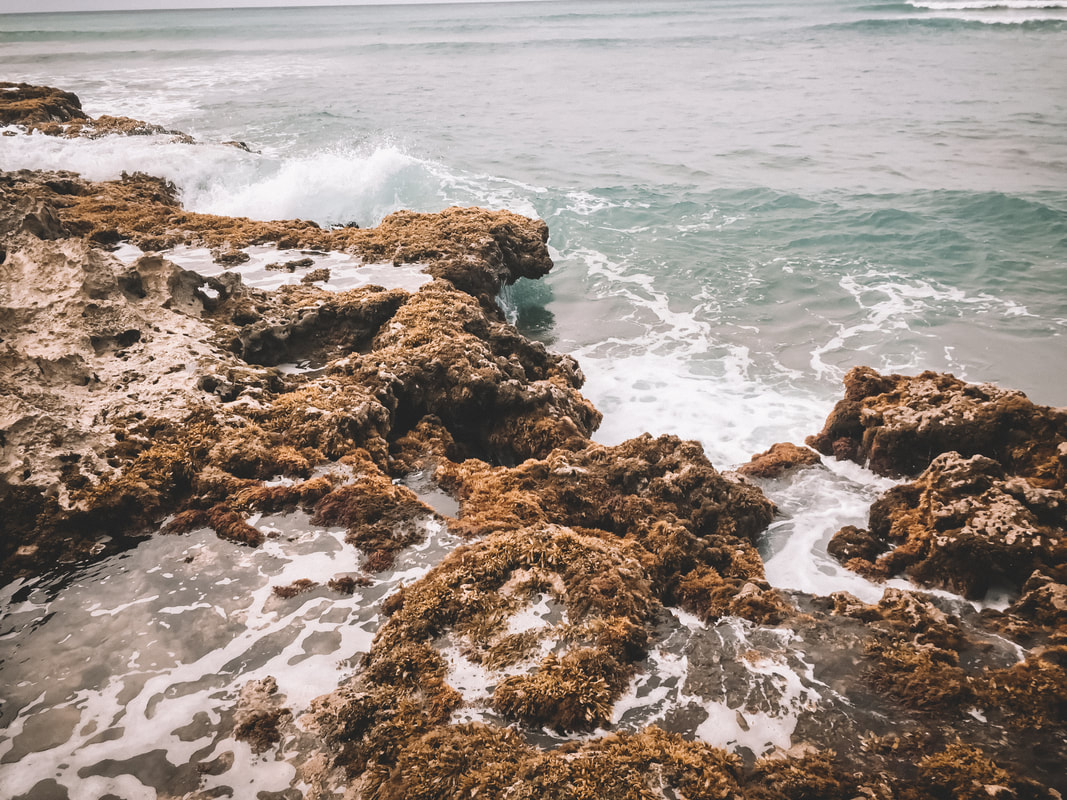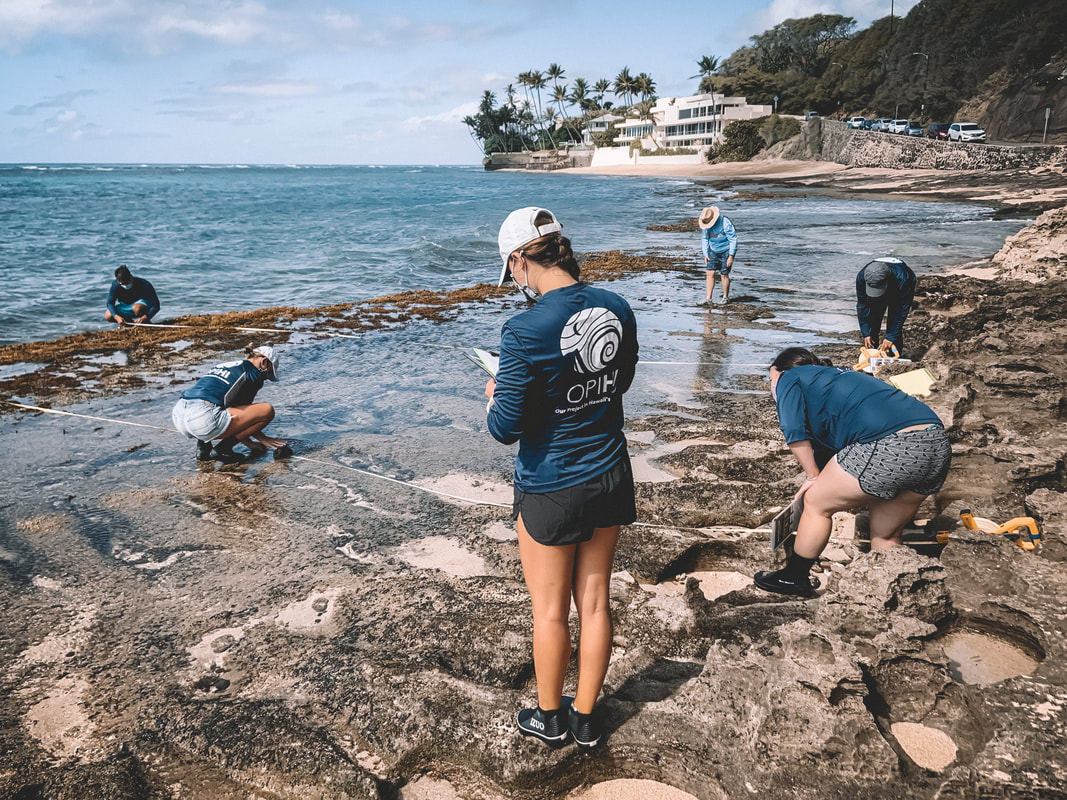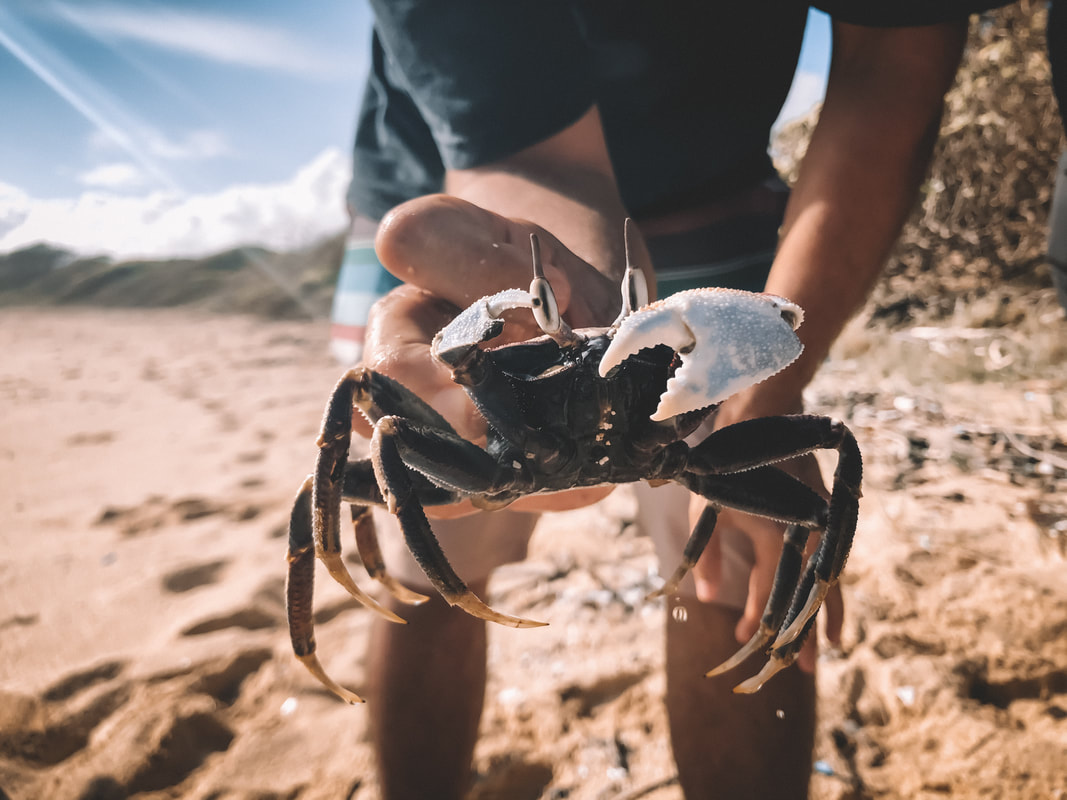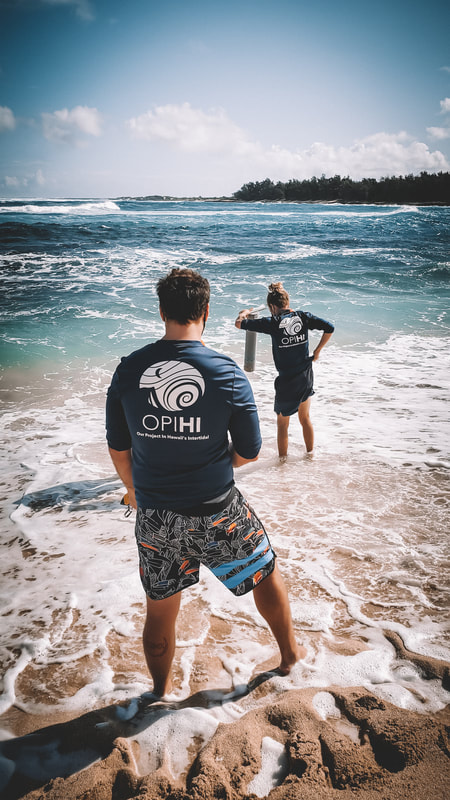ABOUT THE
OPIHI Undergraduate Research Experience
OPIHI Undergraduate Research Experience
University of Hawaiʻi at Mānoa
School of Life Sciences
Our Project in Hawaiʻi's Intertidal (OPIHI) is a year-long undergraduate course where students conduct research in shallow coastal marine habitats.
As an OPIHI student you will:Learn about Hawaiʻi's and coastal marine habitats.
Be trained in species identification and ecological sampling techniques. Work with researchers, community partners, and other students to engage in the entire scientific process—from writing a proposal to collecting data to sharing your findings. Complete a research project in small groups—collecting data related to coastal marine ecosystem management and conservation. Engage in service learning and community outreach. Gain 4 credits for UHM Biology 499 directed research requirements (1 credit Fall semester, 3 credits Spring semester) |
|
Testimonials:
“I feel that I've developed a strong connection with Hawai‘i's coastal environment thanks to the knowledge I've acquired during this program. I can now appreciate the uniqueness of Hawaii's ecology, and I've become very interested in understanding the different ecological dynamics that take place across the islands.” “Following this experience, my level of connectivity to Hawaii's coastal environment has dramatically increased. Through exposure to new areas of the island, I was able to better appreciate the diversity present on the island and observe the local significance of the area. In presenting to the community I also found a greater appreciation for the coastal environment. Seeing their engagement with the topic inspired me to continue to be involved with the coastal ecosystems and strive towards better understanding them from both a scientific and a culturally significant standpoint”. |
Application Details:
The Fall 2024–Spring 2025 cohort application is open.
Applications for the OPIHI Undergraduate Research Program will be evaluated starting May 1st 2024.
If there is still space, applications will thereafter be evaluated on a rolling basis until all the positions have been filled. Only a limited number of applicants will be chosen to participate in this program.
Applications for the OPIHI Undergraduate Research Program will be evaluated starting May 1st 2024.
If there is still space, applications will thereafter be evaluated on a rolling basis until all the positions have been filled. Only a limited number of applicants will be chosen to participate in this program.
Note that application asks for a short statement of interest (minimum 900 characters or ~200 words) and a resume or CV.
We also ask for copies of your transcripts. OPIHI acceptance is based on interest and enthusiasm for the coastal marine environment. Not GPA. However, we want to know what knowledge, skills, and abilities you bring to the program (academic and otherwise!) as well as areas you struggle so we can prepare to support you in these areas.
We also ask for copies of your transcripts. OPIHI acceptance is based on interest and enthusiasm for the coastal marine environment. Not GPA. However, we want to know what knowledge, skills, and abilities you bring to the program (academic and otherwise!) as well as areas you struggle so we can prepare to support you in these areas.
Requirements:
Applicants should have taken at least 24 college-level credits.
The OPIHI program is specifically designed for students looking to obtain directed research requirements for the UHM School of Life Sciences, however students from any major/departments may apply.
This is a two-semester course starting in Fall (1 credit) and ending in Spring (3 credits).
Students must be able to register for and fulfill this 4 research credit sequence.*
Applicants are expected to attend all course activities.
Class meets Tuesday evenings from 5:00 to 6:30 pm in Sakamaki D103.
Field work and trainings are on the weekends (TBD based on tides, weather, and projects).
Some weekday field and lab work may also be required (TBD based on projects).
Applicants are expected to complete coursework,
including a research proposal in the fall and scientific paper and presentation in the spring.
Assignments are designed to build professional research and scientific communication skills.
*Upon acceptance you will be given a CRN (course number) code in which to register for the class. Note that because OPIHI is a special section of BIOL 499, registering for this class will not prevent you from signing up for classes at a similar time. You will need to protect your own schedule.
Applicants should have taken at least 24 college-level credits.
The OPIHI program is specifically designed for students looking to obtain directed research requirements for the UHM School of Life Sciences, however students from any major/departments may apply.
This is a two-semester course starting in Fall (1 credit) and ending in Spring (3 credits).
Students must be able to register for and fulfill this 4 research credit sequence.*
Applicants are expected to attend all course activities.
Class meets Tuesday evenings from 5:00 to 6:30 pm in Sakamaki D103.
Field work and trainings are on the weekends (TBD based on tides, weather, and projects).
Some weekday field and lab work may also be required (TBD based on projects).
Applicants are expected to complete coursework,
including a research proposal in the fall and scientific paper and presentation in the spring.
Assignments are designed to build professional research and scientific communication skills.
*Upon acceptance you will be given a CRN (course number) code in which to register for the class. Note that because OPIHI is a special section of BIOL 499, registering for this class will not prevent you from signing up for classes at a similar time. You will need to protect your own schedule.
